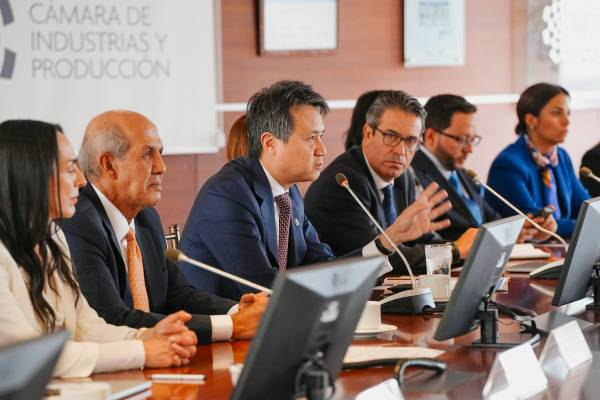WIPO Visit to Ecuador Emphasises Sports as Intellectual Property Opportunity
By Robalino

During a recent visit to Ecuador, WIPO Director-General Daren Tang met with national authorities and stakeholders to discuss the role of intellectual property (IP) in supporting innovation, creativity, and economic growth. A particular focus of the visit was the intersection of IP and sports, a sector where Ecuador has achieved notable international success in disciplines such as cycling, speed walking, and wrestling.
Mr. Tang highlighted that sports offer multiple IP opportunities, ranging from technological innovation in equipment to branding of athletes, clubs, and events. He emphasized that intellectual property can provide a framework for Ecuadorian athletes, federations, and companies to maximise the value of their achievements and expand their global reach.
The connection between sports and IP spans several areas:
-Patents and technology: Equipment, wearables, and other sports-related innovations can be protected through patents, encouraging further development and commercialisation of new technologies.
-Designs: The aesthetic and functional aspects of equipment, apparel, and venues can be protected as industrial designs, helping differentiate products in the market.
-Trademarks and branding: Team logos, athlete marks, event names, and associated slogans are critical for generating revenue through merchandising, sponsorships, and licensing agreements.
-Copyright and broadcasting rights: Live sports broadcasts, audiovisual content, and digital streaming are protected under copyright and related rights, forming a key revenue source for events and federations.
-Licensing and sponsorships: Proper management of IP rights allows federations, clubs, and athletes to monetise their brands and creations, supporting investment in sports infrastructure and talent development.
Effectively leveraging IP in sport requires active management, including registering and enforcing rights, developing licensing strategies, and coordinating protection across jurisdictions. At the same time, the organisation points out that balancing IP exclusivity with public access to sport is essential, given the cultural and social importance of athletic participation.
Ecuador has a growing profile in international sports. For instance, the country has produced high-level cyclists who compete in global tours, elite speed walkers who achieve success at world championships, and wrestlers who consistently perform at regional and international competitions.
These achievements present opportunities to apply IP strategically, from athlete branding to merchandise licensing and innovation in sports equipment.
Notable Ecuadorian athletes include Richard Carapaz, the cyclist who won the gold medal in the men’s road race at the Tokyo 2020 Olympics and the 2019 Giro d’Italia; race-walker Brian Pintado, who earned gold in the 20 km race walk at the Paris 2024 Olympics; Glenda Morejón, a female race-walker and world U18 champion in the 5,000 m walk; Johana Ordóñez, a race-walker and Pan-American champion in the 50 km event in 2019; and freestyle wrestler Génesis Reasco, who became Ecuador’s first world champion in wrestling by winning the 76 kg title at the 2025 World Championships.
